Durham Born, Duke and Durham Proud
For Durham-born members of Duke’s workforce, personal history gives extra meaning to work

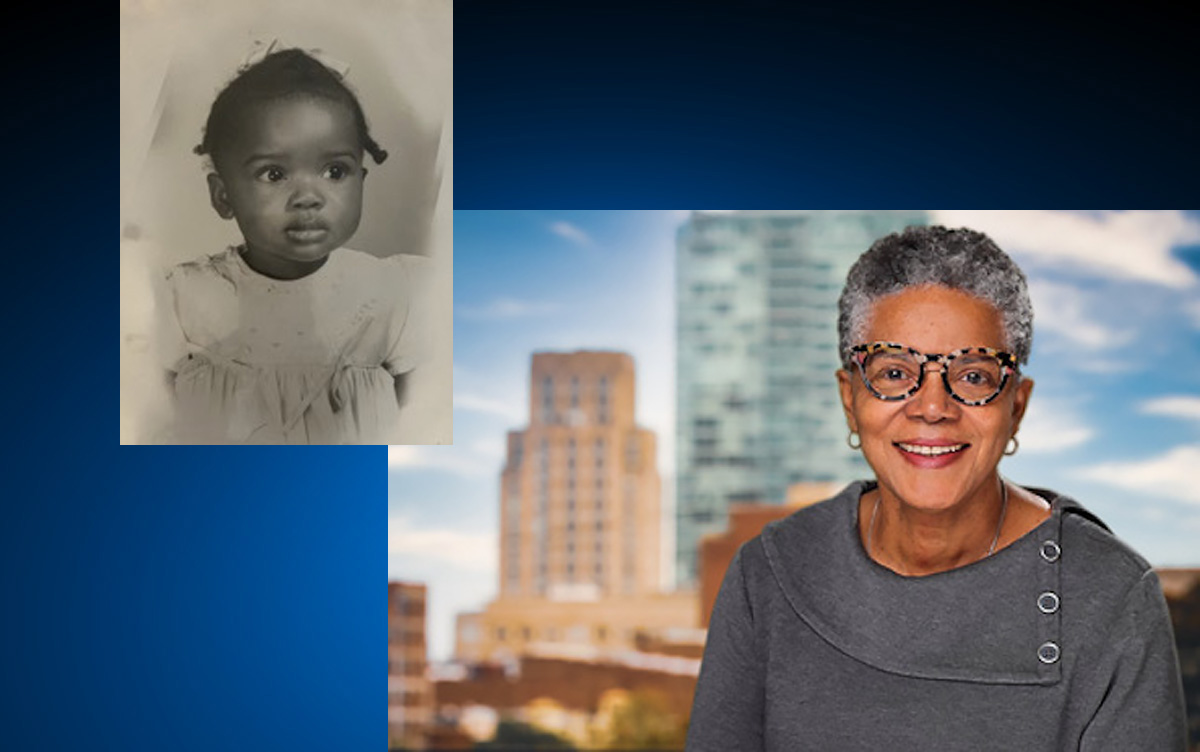
Webb-Bledsoe is one of the many people born in Durham among the Duke staff and faculty whose personal histories give their work extra meaning.
As a leader in education, research and health care, Duke draws bright and ambitious people from around the world to teach, heal and discover. And as the largest employer in Durham County, there are also many bright, ambitious people who have come to work at Duke from right here in Durham.
“Duke can see the importance of Durham, and what it brings to the table, just by looking at how many of us are part of the workforce,” Webb-Bledsoe said. “It’s important to recognize that we are here. We are a resource. What we offer is history and a base that we should appreciate.”
Duke and Durham have been intertwined since 1892, when the school moved to the small-but-bustling tobacco town that had only been incorporated 23 years earlier.
And as both Duke and Durham have grown, the Bull City-born members of Duke’s workforce have a unique perspective on what it means to be part of the story. Here’s what makes them proud to call Durham and Duke home.
Familiar Ground
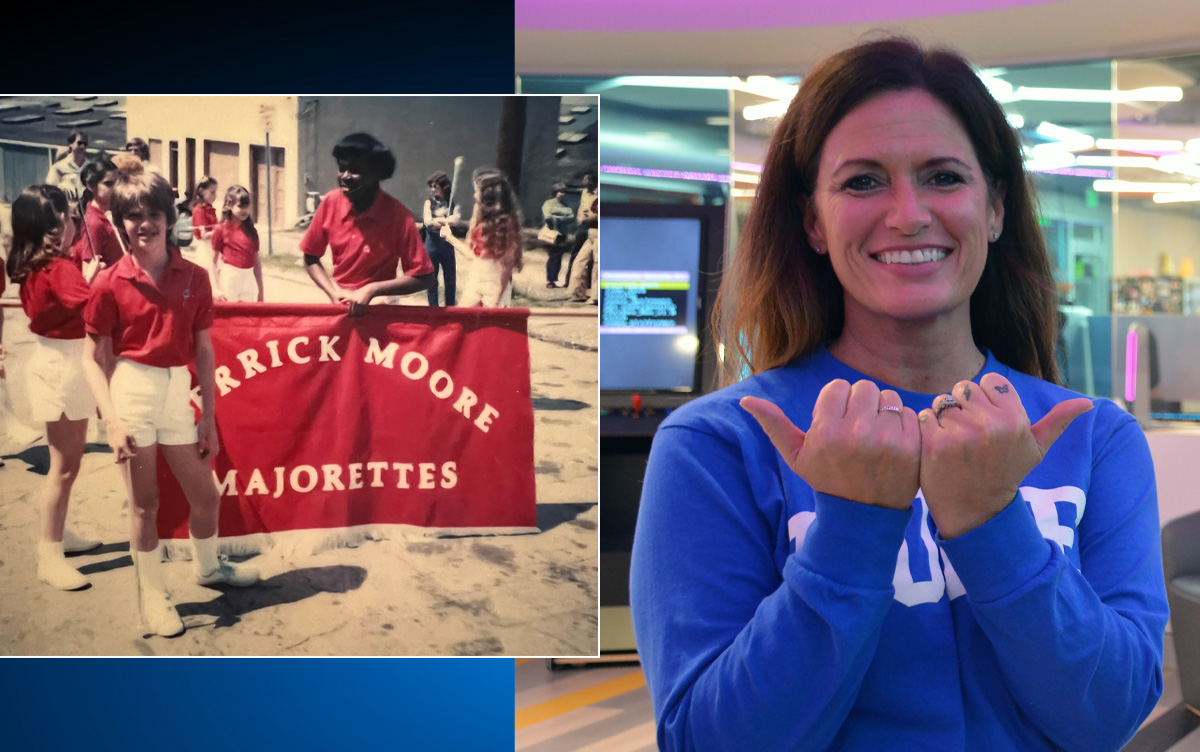
Julie Williams had a long career in the pharmaceutical industry before joining the staff of the Duke Office of Information Technology (OIT) in 2019. But once at Duke, she had no trouble quickly feeling at home.
Williams, who was born in Durham, had childhood memories playing in empty classrooms at the Fuqua School of Business when visiting her mom, Marcia, who worked there.
Once at OIT, Williams, 49, worked at the American Tobacco Campus’ Strickland Building. That was where her grandmother, Mary Morris, worked as a reliever when the space was a factory churning out cigarettes. In 2020, OIT moved to the Power House building, which was where family members told her that her grandfather, Claiborne Morris, a supervisor at the nearby Liggett and Myers cigarette factory, would take smoke breaks.
“I just love having that kind of nuance and nostalgia every day,” said Williams, who is now the program coordinator for the Innovation Co-lab’s Roots series. “Having that kind of history with these places is super cool.”
Digging into Durham History
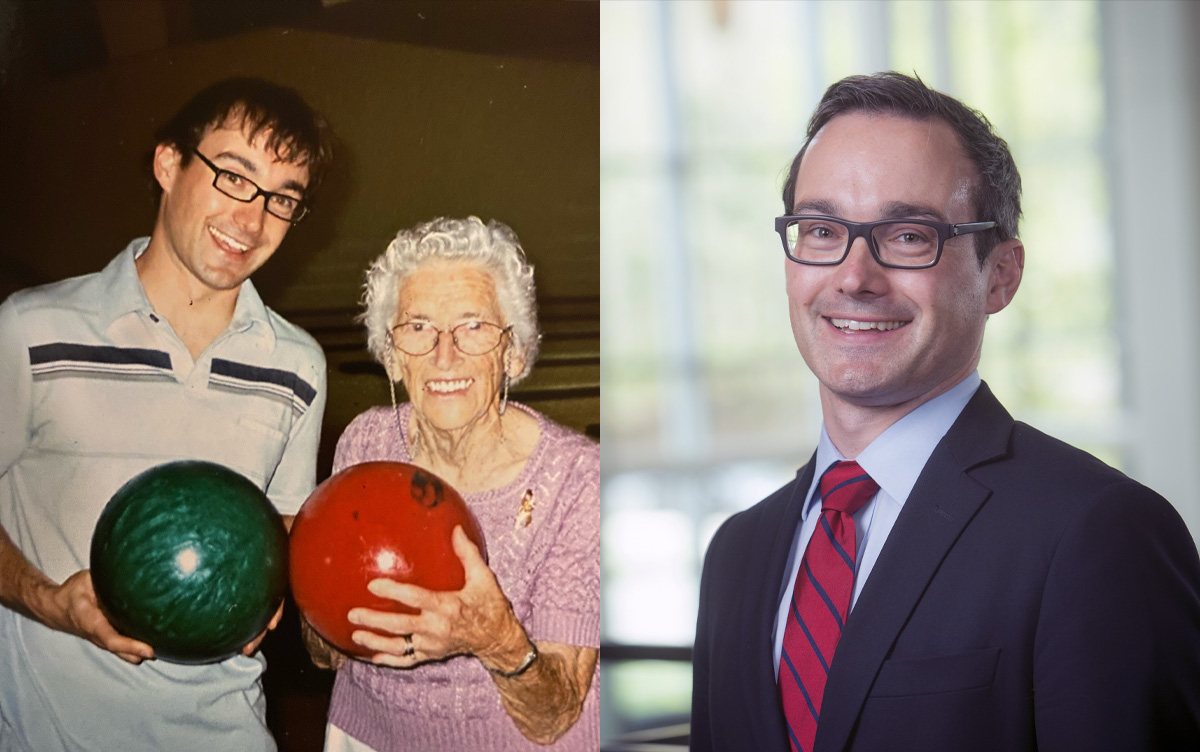
There are plenty of simple pleasures that Joseph Blocher gets from living in his hometown. He can hang out with childhood friends and give his two children the same idyllic memories he had, such as flipping over rocks to search for crawdads along the Eno River.
As the Lanty L. Smith Professor of Law at the Duke University School of Law, Blocher, a Duke faculty member since 2009, has found that Durham’s past can also serve a purpose.
Since 2017, Blocher has taught an Urban Legal History seminar about Durham. It features readings, lectures and culminates with students producing 45-page research papers examining the legal issues that shaped the political, social and economic development of the city during its first 150 years.
From reading legal filings related to the desegregation of Durham’s public schools to learning about the disruptive effect the Durham Freeway had on largely Black neighborhoods, Blocher allows his students to dig deep into his hometown’s history.
“It’s been fantastic because the students keep on writing these tremendous papers and a bunch of them have been published,” Blocher said. “I think it just contributes to the understanding of Durham.”
Generational Connections
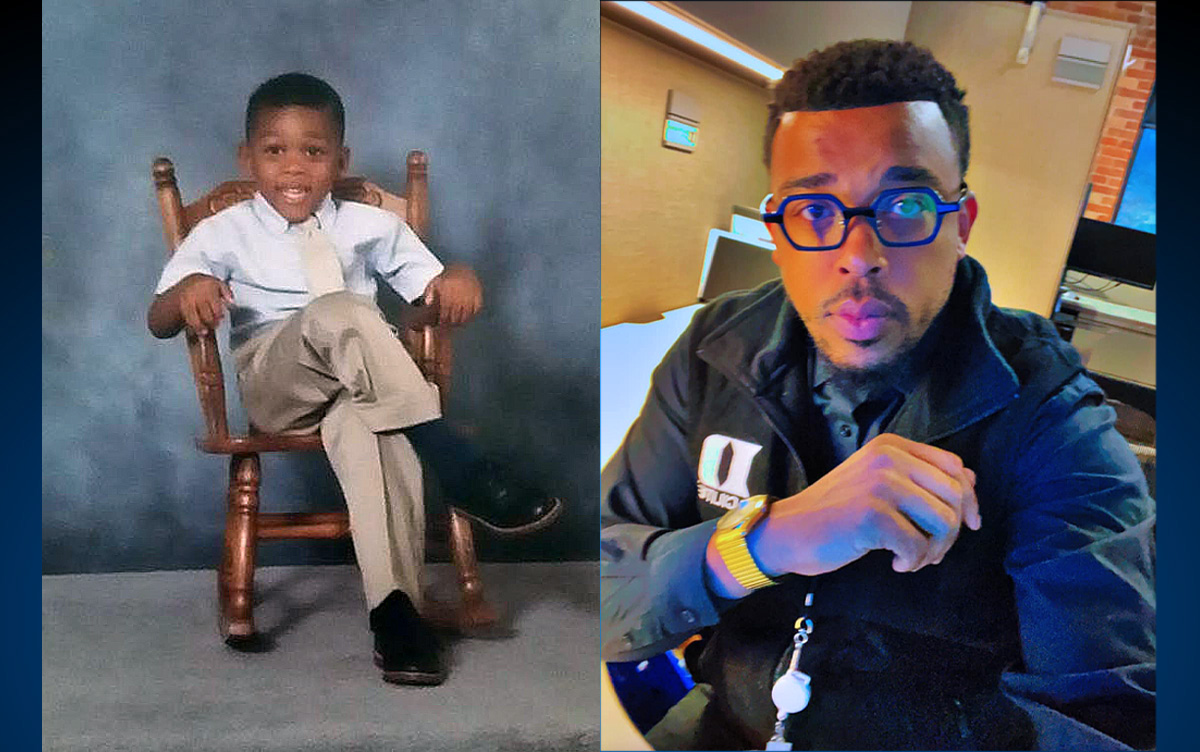
Aaron Tharrington Jr. has worked at Duke in some capacity since 2004. It’s a family tradition since his mother, Regina, and his father, Aaron Sr., also worked at Duke.
Now a staff specialist with Duke Facilities Management, Aaron Jr., 37, remembers his fathers’ reaction when he landed is first job at Duke as a Duke University Hospital patient transporter. Aaron Sr., now retired, stressed to his son the importance of leaving a good impression with everyone he encountered because you can never tell which gesture or kind word will get noticed.
“He told me you can go far at Duke if you do your job well,” Aaron Jr. said. “You never know who’s watching.”
Once at Duke, Aaron Jr. experienced a quirk of being a second generation Duke employee with the same name as his father.
“When I first started, people would mix us up a lot,” Tharrington said. “People say we look alike, so people would come up and say ‘Oh, you’re Aaron,’ and start asking me something, I’d have to say, ‘I think you’re looking for my dad.’”
Surrounded by Memories
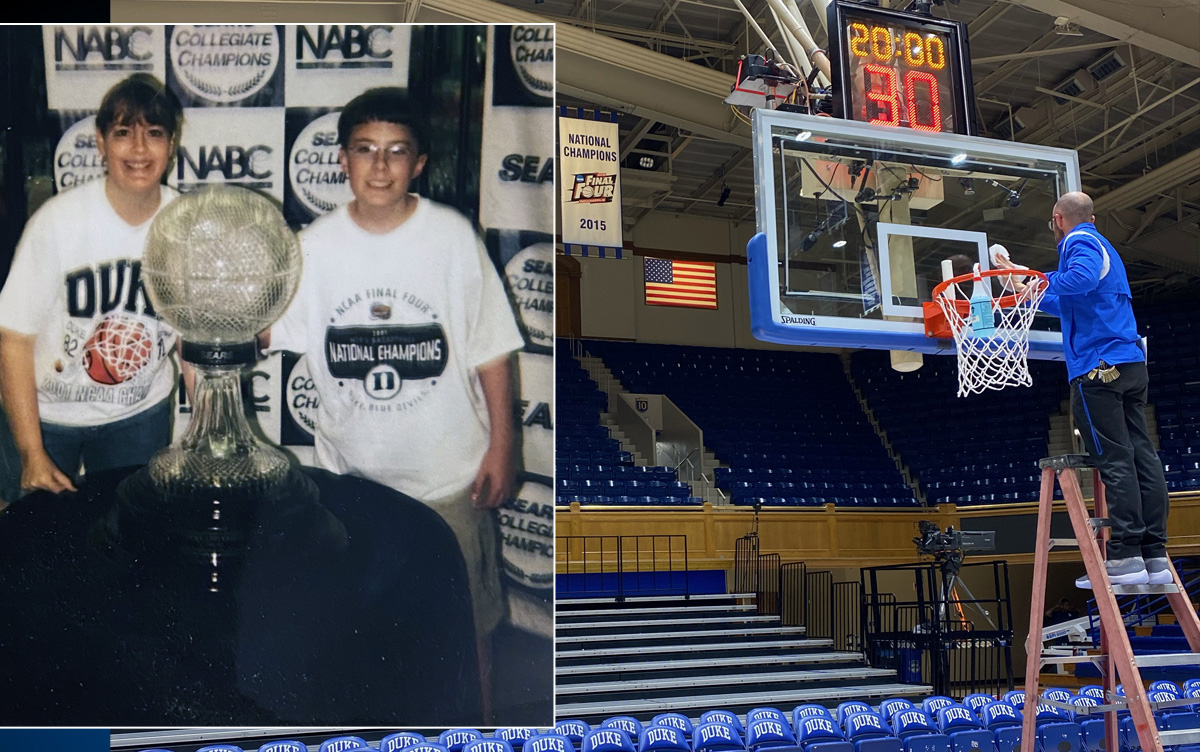
Every so often, on Cameron Indoor Stadium game nights, Duke Director of Athletics Facilities and Projects Jeremy Anderson sticks around to check behind the cleaning crews, meaning he’s one of the last people out of the building.
It’s on nights like these, when the iconic basketball venue is quiet and empty, that Anderson will wander up to Section 13, Row N, Seats 22 and 24. Since 1985 – two years before Anderson, 35, was born at Duke Regional Hospital – these have been his family’s seats for Duke men’s basketball games.
His mom, Lynn, who worked at the Duke Patient Revenue Management Organization at the time, bought season tickets using a buy-one-get-one-free discount for Duke employees. In the years that followed, Lynn’s purchase led to many indelible memories.
He remembers seeing buzzer-beaters, championship celebrations and watching games against North Carolina alongside his father, Van, or Lynn, who died in 2010.
In those quiet moments in his family’s seats, Anderson, who joined the Duke Athletics staff full-time in 2010, feels a strong sense of gratitude for being able to work alongside so many meaningful personal memories.
“I just never take being here for granted,” Anderson said.
Helping Her Neighbors
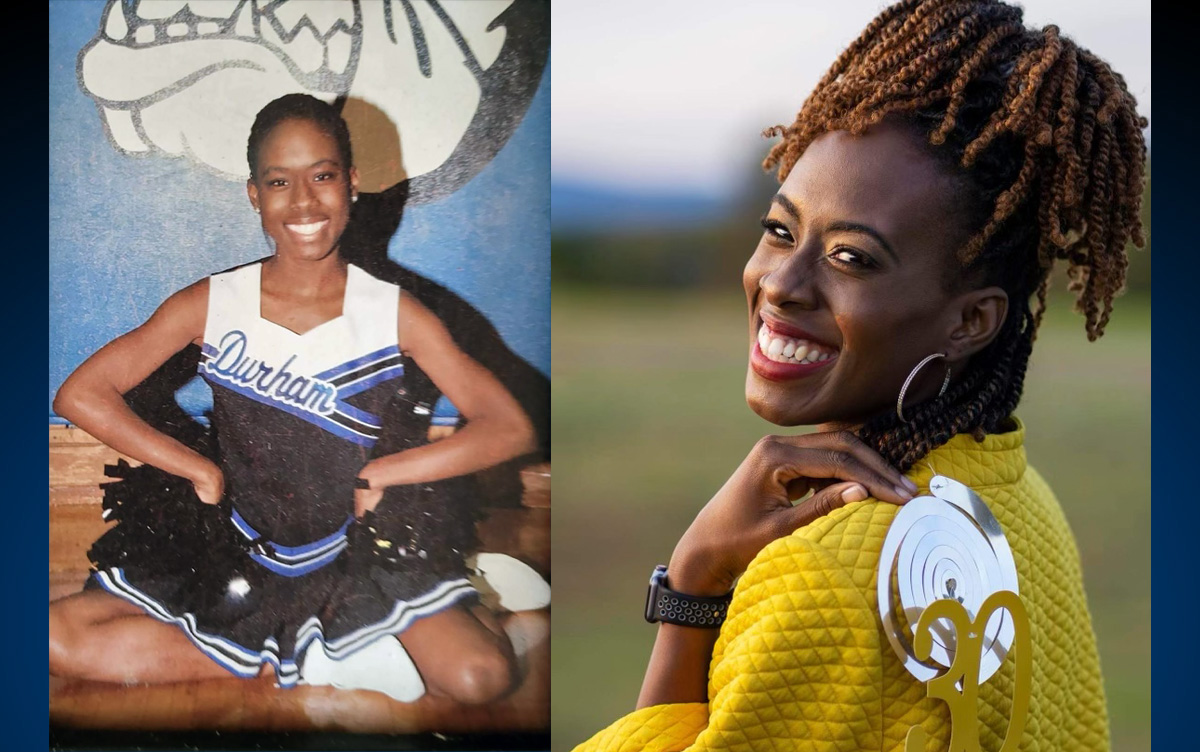
Whether as a child growing up in Durham or an adult looking for a place that fits her life, Rashel Eastman and Durham have always been a perfect match.
“There’s just something authentic about Durham,” Eastman said. “The culture is unique. I feel like Durham is a melting pot, it’s very diverse and there’s a lot of creativity and people from different walks of life.”
Eastman, a Duke employee since 2012, used the employee tuition benefit to earn a nursing degree, leading to a role as a licensed practical nurse helping Duke Regional Hospital patients recovering from strokes or neurological issues.
Throughout her Duke career, Eastman has cherished the opportunity to care for the people of the city she adores. She said she often comes across familiar faces. When she does, it’s a reminder that she’s doing what she’s called to do, exactly where she’s meant to do it.
“I love it,” Eastman said. “I might see someone who knew me as a kid, or a former teacher or classmate and I’m able to give back to them, or help them find a solution. That’s important to me.”
Send story ideas, shout-outs and photographs through our story idea form or write to us at working@duke.edu.